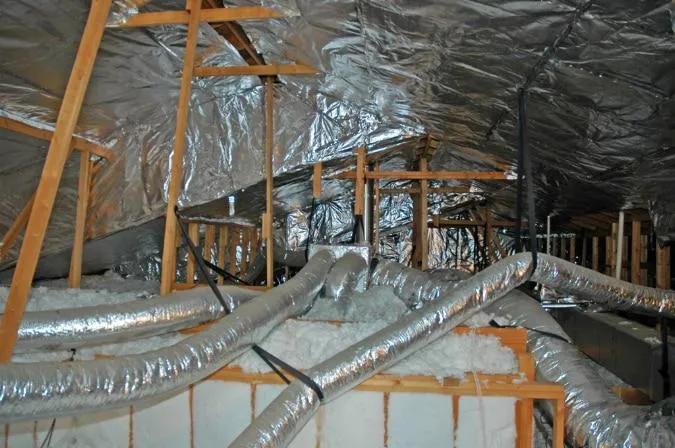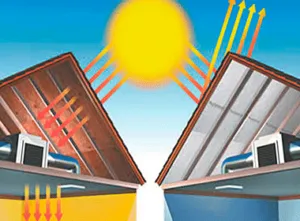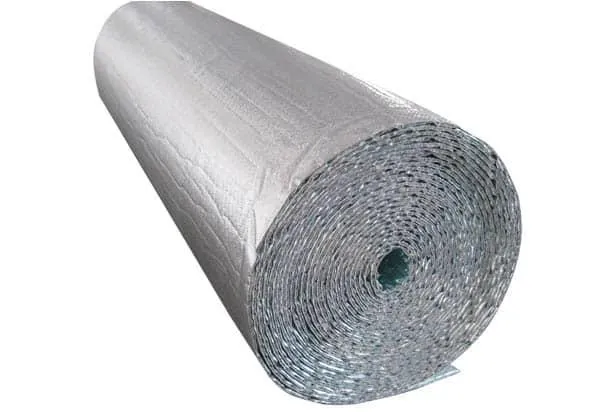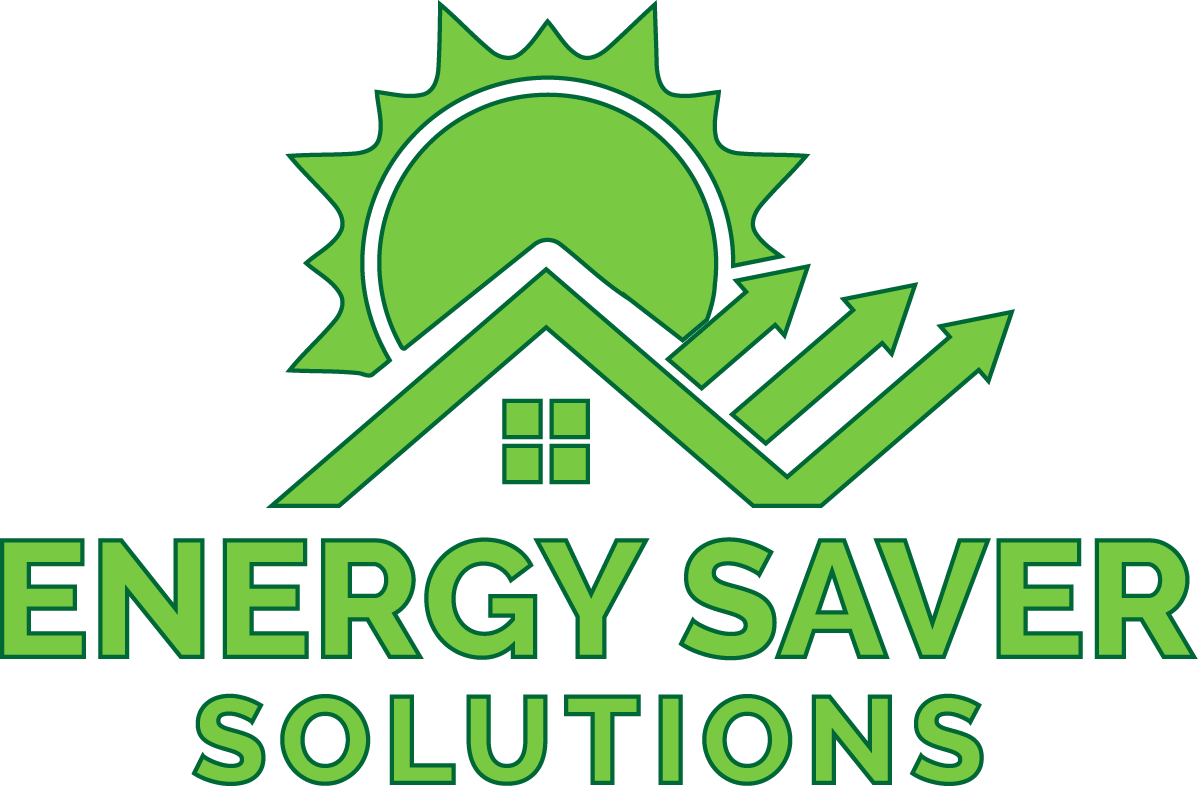Superior Radiant Barrier Foil Installation in Florida
OUR RADIANT BARRIER FOIL WILL BLOCK 97%
OF THE SUN’S HARMFUL RAYS EVERY TIME
CLICK TO CALL ON MOBILE
Superior Radiant Barrier Foil Installation in Florida
OUR RADIANT BARRIER FOIL WILL BLOCK 97%
OF THE SUN’S HARMFUL RAYS EVERY TIME
CLICK TO CALL ON MOBILE
Superior Radiant Barrier Foil Installation in Florida
Radiant Barrier at a glance:
- Blocks 97% of the radiant heat at all times
- Lower attic temperatures up to 30 degrees or more!
- Reduce heat flow to living spaces up to 50% or more!
- Lower monthly utility cost year-round up to 40% or more!
- Will accompany your existing insulation to keep your attic regulated
Radiant Barrier Overview Video
Radiant Barrier Demonstration
Florida experiences one of the country’s widest temperature ranges. Temperatures vary from lows in the 30s in the winter months to highs exceeding one hundred degrees in the summer months.
Let’s face it – air conditioners and heaters are the only way to deal with Florida's harsh climate.
There’s only one catch: heaters and air conditioners consume energy – lots of it. In fact, up to 70% of your yearly energy consumption can be attributed to cooling and heating alone.
Good news is, you don’t have to feel bad every time you touch that thermostat dial.
There’s actually an easier way to lower your energy bills without spending thousands of dollars on energy efficient fixtures. There’s also no need to perform any crazy remodeling with your home.

Florida's Best Radiant Barrier Foil
Radiant barrier foil has been around for a while, but it’s only until recently that contractors and homeowners recognized the true potential of this product. Cities around the country have actually added a mandate to their building code to include radiant barrier foil in all new home construction. That alone should prove its effectiveness.
How Radiant Barrier Works
Heat is transferred to your home by conduction, convection, and radiation. Conduction is the transfer of heat between two objects – like how butter melts in a hot pan, or when ice melts in your hand. The less dense a material is, the less conductive it becomes.
Meanwhile, Convection is the transfer of heat through air. A good example is how a turbo broiler cooks food, or how hot air rises to the top of the room.
Radiation is the movement of heat across space, irregardless of whether or not there’s anything in it’s way. It is responsible for majority of the heat transfer among homes. In fact, much of the heat in your home is radiated heat from the sun.
Okay, it’s aluminum insulation, no big deal. Can’t regular insulation also do that?
Conventional insulation only slows down the transfer of heat. Eventually, the heat will reach the attic and ultimately, your living space. Radiant barriers prevent thermal transfer by reflecting 97% of the heat off of your roof at all times.

The Bottom Line on Radiant Barrier Foil

Meanwhile, Convection is the transfer of heat through air. A good example is how a turbo broiler cooks food, or how hot air rises to the top of the room.
Radiation is the movement of heat across space, irregardless of whether or not there’s anything in it’s way. It is responsible for majority of the heat transfer among homes. In fact, much of the heat in your home is radiated heat from the sun.
Okay, it’s aluminum insulation, no big deal. Can’t regular insulation also do that?
Conventional insulation only slows down the transfer of heat. Eventually, the heat will reach the attic and ultimately, your living space. Radiant barriers prevent thermal transfer by reflecting 97% of the heat off of your roof at all times.
Your Home Cannot Survive on Radiant Barrier Alone
Having your attic properly insulated is a major step to conserving energy and lowering utility costs monthly. As good as radiant barrier is, it is only a tool in the multitude of tools that keep your home efficient. If you only had radiant barrier foil and nothing else, you probably wouldn’t see the benefits. So, if you have both radiant barrier and good attic insulation, then you are able to reap the benefits of a more energy efficient space. If, when you go up into your attic and you can see the floor joists and the insulation is settled, you probably need to refresh that old insulation to maximize the effectiveness in your attic.
Premium Performance Marketing now proudly offers Radiant Barrier Foil, Blown-in Fiberglass, solar attic fans, and other attic energy saving products. Call us today and find out more about how to make your home more energy efficient.
Get a FREE Estimate for Your Home Today
Our professional technicians will come to your home and evaluate your insulation needs. They will then go over with you every option and find the best solution for both your home and your budget. Call us today!
SITEMAP
Home
Services
Contact Us
Privacy Policy
HOURS OF OPERATION
Monday: 8:00am-7:00pm
Tuesday: 8:00am-7:00pm
Wednesday: 8:00am-7:00pm
Thursday: 8:00am-7:00pm
Friday: 8:00am-7:00pm
Saturday: 8:00am-7:00pm
Sunday: CLOSED
